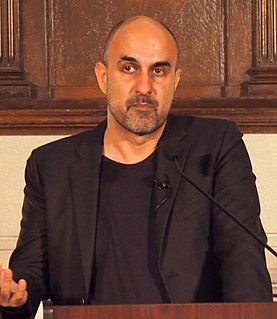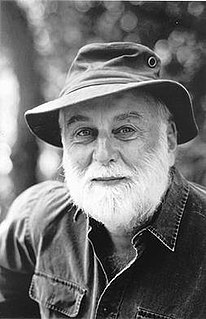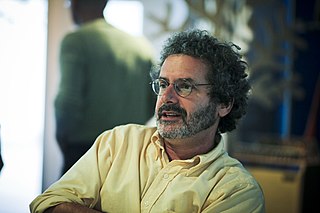A Quote by Hari Kunzru
I'm interested in complexity, in the mathematical sense, as well as the idiomatic sense. The idea of emergence - that it's possible for complex patterns to arise out of many simple interactions - is fascinating.
Related Quotes
Nature seems to take advantage of the simple mathematical representations of the symmetry laws. When one pauses to consider the elegance and the beautiful perfection of the mathematical reasoning involved and contrast it with the complex and far-reaching physical consequences, a deep sense of respect for the power of the symmetry laws never fails to develop.
People have a hard time accepting free-market economics for the same reason they have a hard time accepting evolution: it is counterintuitive. Life looks intelligently designed, so our natural inclination is to infer that there must be an intelligent designer--a God. Similarly, the economy looks designed, so our natural inclination is to infer that we need a designer--a government. In fact, emergence and complexity theory explains how the principles of self-organization and emergence cause complex systems to arise from simple systems without a top-down designer.
All propaganda or popularization involves a putting of the complex into the simple, but such a move is instantly deconstructive. For if the complex can be put into the simple, then it cannot be as complex as it seemed in the first place; and if the simple can be an adequate medium of such complexity, then it cannot after all be as simple as all that.
The world is a thing of utter inordinate complexity and richness and strangeness that is absolutely awesome. I mean the idea that such complexity can arise not only out of such simplicity, but probably absolutely out of nothing, is the most fabulous extraordinary idea. And once you get some kind of inkling of how that might have happened ' it's just wonderful. And . . . the opportunity to spend 70 or 80 years of your life in such a universe is time well spent as far as I am concerned.
Because the idea of zombies seems to make sense, and seems to, in a certain sense, be possible, I think one can use that to argue against the thesis that everything is purely physical. Now many people, I think, agree that the idea of zombies are conceivable, including people who want to be physicalists.
By walking naked you gain far more than coolness. You feel an unexpected sense of freedom from restraint. An uplifting and almost delirious sense of simplicity. In this new simplicity you soon find that you have become, in a new and surer sense, and integral part of the simple, complex world you are walking through. And then you are really walking.
Though the structures and patterns of mathematics reflect the structure of, and resonate in, the human mind every bit as much as do the structures and patterns of music, human beings have developed no mathematical equivalent to a pair of ears. Mathematics can only be "seen" with the "eyes of the mind". It is as if we had no sense of hearing, so that only someone able to sight read music would be able to appreciate its patterns and harmonies.
When common sense sees a puzzling phenomenon it looks for a causal agent. When it sees organization it looks for an organizer. This works amazingly well for purposes ranging from the diagnosis of diseases to the creation of governments. But it cannot account for emergence ... the appearance of complex phenomena not predictable from the basic elements and processes alone.
Too many escape into complexity these days. For it is an escape for persons to cry, when this question of the equality of peoples is raised in India or in our own South, 'Ah, but the situation is not so simple.' ... no great stride forward is ever made for the individual or for the human race unless the complex situation is reduced to one simple question and its simple answer.
It is possible to make buildings by stringing together patterns, in a rather loose way. A building made like this, is an assembly of patterns. It is not dense. It is not profound. But it is also possible to put patterns together in such a way that many patterns overlap in the same physical space: the building is very dense; it has many meanings captured in a small space; and through this density, it becomes profound.







































